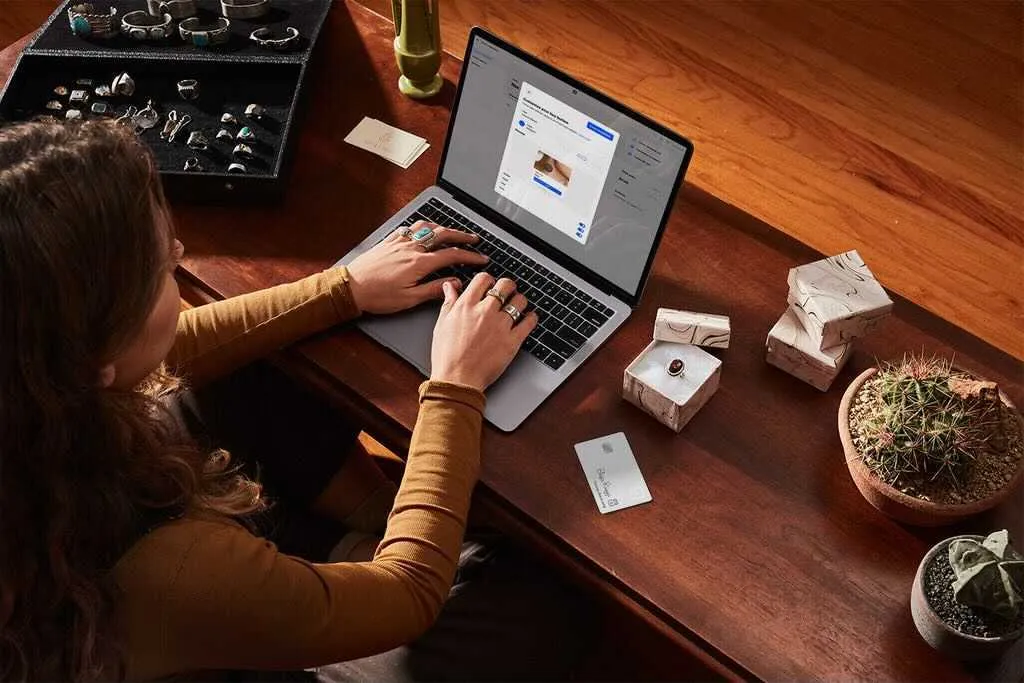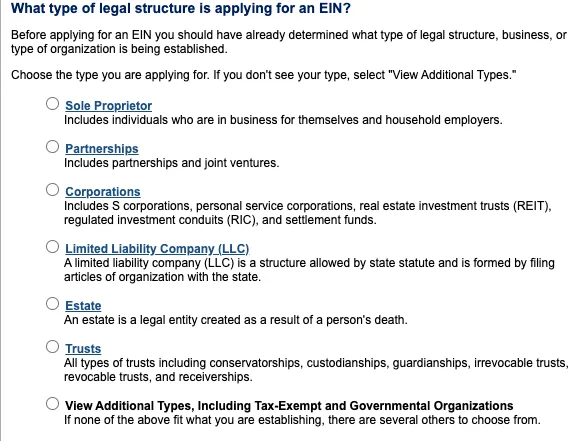Table of contents
So you’ve decided to start a business. First off, congrats on taking the plunge — being in business for yourself has personal rewards above and beyond any monetary success you might achieve. You’re joining a growing number of new entrepreneurs over the past year. There’s autonomy and satisfaction in knowing that every milestone is the result of your own blood, sweat, and tears.
But whether this is something you’ve been dreaming about for years or an idea that’s just recently struck, you need to make a plan. This guide walks you through the steps required to start a business.
Before embarking on your entrepreneurial journey, you may want to consider writing your own checklist for starting a business to ensure you don’t miss a step. While your industry and business goals will largely influence this checklist, all owners likely need to do the following before opening their doors for business:
1. Start with a business idea
Begin by solidifying a business idea and doing your market research. Before you start planning, make sure you have a clear idea of what you want your business to be. This is also the time to research your industry to determine trends and identify key competitors and how you can differentiate yourself.
2. Write a Business Plan
A business plan is where you plan out your business’s future objectives and how you will achieve them. Think of it as your guide for success and any potential roadblocks you may face. Your plan should show you’re looking three to five years ahead, and include markers for milestones along the way.
You need a business plan for a couple of reasons. First off, it’s a blueprint for how you’re going to start, run, and then grow your business — something you can look back on for reference and measure yourself against. Secondly, if you’re seeking outside funding, you need a business plan to show that you’ve thought things through carefully.
When it comes to writing a business plan, there’s no one-size-fits-all approach. There is a bounty of resources out there to help entrepreneurs like you get started.
But even though business plans vary, they all typically contain a few key components. When you think about formatting, it’s a good idea to use the below sections as a template — including visuals like graphs and projections where appropriate. Length can also fluctuate depending on what you’re trying to do but, typically, business plans are between 15 and 20 pages long.
Here’s an overview of what your business plan should include:
- Executive summary: A top-line description of your business and how you’re going to accomplish your goals
- Business description: Your elevator pitch, conveying your business idea in a concise manner
- Market analysis: A current landscape of the market and a description that identifies your target market
- Competitive analysis: The strategic research outlining information about competitors in the space
- Service and product line: Details on what type of service or product you’re offering
- Operations and management plan: How you’re going to get up and running, and then manage day-to-day operations
- Financial considerations: A financial analysis of all the capital you need to start, run, and grow your business

3. Determine a Business Model to Make Money
As you lay the groundwork for your new business, it’s important to consider the different types of business models you may want to pursue. A business model is the way a company plans to make money with its product or service. It is an explanation for how you will deliver value to your customers and includes who your customer base is, products or services you plan to sell, and costs that will be incurred.
Here are different types of business models to evaluate:
- Distributor: A distributor purchases products, stores them, and subsequently sells them through a distribution channel. The selling of these products may take many forms, such as selling using the aid of a sales team or a reseller.
- Wholesaler: A wholesale business model means a business is selling products in bulk to a retailer, often at a discounted price. These retailers will in turn sell directly to customers.
- Subscription: In a subscription business model, customers make a recurring payment on a monthly, quarterly, yearly, or other consistent basis for a product or service.
- Freemium: Freemium business models are a combination of “free” and “premium.” The business might give away the service at no cost while offering more advanced or additional services for a fee.
- Marketplace: Marketplace business models are where multiple sellers or vendors come together to sell products to customers.
- Direct-to-consumer: A direct-to-consumer business model is when a business sells directly to the consumer rather than through vendors, retailers, or resellers.
- Razor-razor blade: A razor-razor blade business model is when a product or service is sold at a lower price to increase sales of a complementary or paired product. For example, a razor might be priced at a lower cost in order to increase sales of the razor blades necessary to use it.
- Consulting services: Your business can offer consulting services by sharing your expertise with others. Businesses might hire a consultant to provide guidance on a specific project or over a specific amount of time.
- Franchisee: In a franchise business model, the franchisee pays a fee to the franchise in order to license the name and operating systems of the business.
4. Choose Your Business Name
It’s time to make things real: Decide on your business name (an important branding exercise in itself) and register it with the government.
Here are some steps to get you rolling with your business name:
- Brainstorm business name ideas.
- Make sure the name isn’t taken.
- Use tools to generate and verify the business name.
- Consult an expert.
- Trademark your business name.
5. Choose Your Business Structure
Each type of business entity — sole proprietorship, partnership, LLC, corporation — has its own unique tax, legal, and structural implications. Because of this, it’s smart to consult a reputable accountant and lawyer before officially deciding on what form of business entity you want to establish. It’s also a good idea to spend some time with the IRS Small Business and Self-Employed Tax Center, as well as the the State and Local Tax Guide.
You need to register your name or DBA (doing business as) name with the county clerk’s office or your state government, depending on where your business is located. But before registering your business name, you have to decide on a business structure. If you’re stuck, the IRS is a good place to start.
Registering your business name is usually part of the process of registering LLCs and corporations. But if you’re starting a sole proprietorship or a partnership operating under a name that isn’t your own (e.g., your name is John Smith but you want your business name to be something else), you may need to file a DBA.

6. Get Your Licenses and Permits
Most businesses require licenses or permits to operate. If figuring out licensing and permits sounds overwhelming, you might want to think about consulting an attorney in the beginning stages, just to make sure you are compliant with all rules and regulations. Outside of a general business license, and depending on the type of business you’re building, you may need additional licensing and permits.
Now for all the paperwork.
- Get a Tax Identification Number (TIN), also known as an Employer Identification Number (EIN). You can file for an EIN in a number of ways, including online, by fax, or by mail. Check the IRS for a detailed explanation of how to apply for an EIN.
- Register for state and local taxes. Each state and locality has its own taxes, so it’s important to have a solid knowledge on this front to help you avoid problems and save your business money. (This is another place where an accountant or lawyer comes in handy.) Check the Small Business Administration for more information on determining your state and local tax obligations.
- You may also need a number of state and local licenses and permits. The required licenses and permits vary from business to business, so be sure you have the ones you need before you set up shop.
If you’re planning on hiring employees, now is the time to familiarize yourself with all your obligations as an employer. You want to cross your t’s and dot your i’s before you hire your first team member. This is also something you may want to discuss with your lawyer.
7. Determine Your Business Startup Costs
Starting a business does come with a variety of upfront costs that all business owners incur while getting their new venture off the ground. Proactively making allowances for expenses will help you track your working capital or the measure of how much liquidity your business has.
While every business is different, and startup costs vary, there are a few expenses that are common to most businesses:
- Employee expenses: You’ve probably considered labor costs as part of your business plan. Factoring in wages, salaries — including your own — and employee benefits will help you better manage your cash flow and plan ahead as you scale your business.
- Bills and utilities: Consider the bills and utilities related to your business. Regardless of whether you own or rent your physical space, you can expect to manage payment for utilities ranging from water and electricity to installing and maintaining WiFi. Both online and brick-and-mortar businesses may incur bills related to their website’s hosting service subscription, customer support software, point-of-sale systems, or accounting software.
- Equipment and supplies: Different types of businesses will require different equipment. Think through the inventory, property, and equipment needs that are related to your business so you can determine if owning or leasing those supplies might be best. For example, a hair salon will have different equipment and supply needs than a food truck.
- Insurance, licensing, and permit fees: Protecting your business by making sure you have all the appropriate licenses and permits to operate should be a top priority. A lot of licenses and permits do come with processing fees, and some with annual fees. These should be factored into your business’s budget.
- Marketing materials: You may rely on print or digital marketing to increase awareness and sales for your business. Keep in mind any costs related to printing or distributing marketing materials.
Overhead costs can be sorted by fixed, variable, and semi-variable. Take a look at where your costs might fall, or calculate a break-even analysis to help forecast future business decisions and stay on top of cost accounting.
As you grow your business, you may want to consider financing. Taking on business financing is a way to provide funds for your business and can take the shape of a traditional loan, line of credit, credit card, and more.
8. Find a Location (or Focus on eCommerce)
Where will you conduct business? This can vary widely based on the type of business you’re running. If you’re a home contractor, for example, you may not even need to rent a physical office. But if you’re opening a salon, on the other hand, you need a space you can use for cutting hair.
Choosing a physical space is one of the most challenging aspects of starting a business. But it’s also one of the most important and requires loads of research and planning. For starters, you have to understand your city’s zoning laws and have a solid grasp on all the financials (like payroll taxes and any hidden costs) associated with renting a space. For help with this, talk with your city and neighborhood councils, or consider bringing on a professional agent to help.
Aside from laws, fees, and regulations, you should also consider your brand image, the safety and accessibility of the neighborhood, your proximity to any suppliers you might need to work with, and any plans for expansion. Talk to fellow business owners in the area and consult free government-provided data on neighborhood and city demographics to help inform your decision.
Don’t need a physical location? Embrace eCommerce with a free online store. As technology blurs the lines between digital and physical commerce, new opportunities to engage with consumers are bubbling up. And consumers are game, according to Square Future of Commerce data: 39% are open to trying virtual experiences or interactive displays, and 37% of consumers do their shopping online rather than in-person.
9. Set up Your Business Bank Accounts
As you set up your business, you will begin to accept and spend money. Separating your business accounts from your personal accounts will help mitigate risks, and it’s crucial to do this right at the start. By setting up business banking for your newly founded business, you start building a track record of your finances that will help inform your future business decisions and options.
Open a business bank account
Opening a business checking or savings account can help keep your finances separate, protecting both your business and your customers. Not only can starting a business bank account create a place for your company to store money, you can start building business credit. Building business credit is important to maintain if you’d like to consider outside financing in the future. In fact, you will be accruing a business credit score separate from your personal credit score.
Here are different types of bank accounts you may consider opening:
- A business checking account, which enables you to receive payments under your business name and spend funds using debit cards, checks, or wire transfers. This is the account you’d use to manage payroll and handle other operational expenses.
- A business savings account, which allows you to store funds safely while they earn interest.
- A business credit card account, which enables you and other authorized users to make purchases on credit and pay them off later.
- A merchant services account, which allows you to accept credit and debit card transactions from customers in a safe manner, with purchase protection for customers and security for their personal information.
Keep track of your financial statements
By looking at your accounting from the start, you can gain a better sense of your business’s cash inflows and outflows. The three accounting statements you’ll want to keep track of include a cash flow statement, balance sheet, and profit and loss (or income) statement.
These statements are not only a good way for you to have a sense of your business’s financial health, but also to establish a history of your business’s finances.

10. Get Your Business Online
Consumers expect that they can interact with your business on their own terms, any time, and anywhere. And the key channel that customers can use to contact you and learn about your business is your website. Here’s how to get started.
Register a domain name
If you don’t have a website, you need to purchase your domain. Some eCommerce platforms let you buy it directly from them or you can use a domain registrar. Your domain should be your business name if it’s available, or something that fits your brand, products, or services.
A good domain name should be short and easy to share. Avoid using numbers, hyphens, underscores, and symbols that are difficult to remember. Connect the domain name to your business. If your business name isn’t available, add a prefix or suffix. For example, a kayak company located in San Francisco could choose SanFranKayakTours.com or KayakToursSF.com.
Also, be sure to check with your legal counsel to ensure that you don’t run into trouble by choosing a domain name that may be confusingly similar to another business’s brand.
Create a website
There is a wide range of approaches for business websites, from DIY self-hosted services to eCommerce platforms, that make it easy to build a site with no coding required.
Square Online helps you grow your business with a professional, beautiful website. The easy-to-use online store builder allows you to sell online, offer curbside pickup or local delivery, and sell through Facebook, Instagram, and more. And it integrates with your point-of-sale system to keep online and in-person orders, items, and inventory in sync, all in one place.
No matter the path you choose, here are some key tips to optimize your business website:
- Stay current: Keep everything updated, from service and menu offerings to pricing, contact information, hours of operation, and directions
- Put your best foot forward: Make the site easy to navigate with well-lit, composed shots of your space and offerings
- Optimize for mobile: Most consumers will find your site on their phones, so make sure it works on mobile devices as well as desktops
- Implement some SEO: Help customers find your business when they’re searching
- Link your social media: Let visitors easily keep up with your updates across channels
11. Get Business Insurance
Business insurance can protect your business from possible financial loss. There is a range of different types of business insurance options, but not all of them will be applicable. For some business owners, having insurance can provide protection from paying unexpected costs.
Depending on your type of business, here are a few types of business insurance options to explore:
- General liability insurance: General liability insurance protects your business from claims of bodily injury or property damage resulting from your products or services.
- Commercial property insurance: Commercial property insurance protects your business’s physical assets, such as equipment, furniture, inventory, or supplies. This can help cover costs for damaged, destroyed, or stolen property.
- Business income insurance: Business income insurance covers loss of income when damage to a company’s premises or property causes a slowdown or suspension of operations. Common costs covered under business income coverage can include employee wages, mortgage and rent payments, tax payments, or loan payments.
- Workers’ compensation insurance: Most states require employers to obtain an insurance policy for workers who get injured on the job or become ill due to a workplace exposure. Workers’ compensation insurance requirements for employers vary from state to state, so be sure to review your state’s requirements and find a policy that suits your business.
There are also additional types of business insurance to explore, like data breach insurance, commercial auto insurance, or professional liability insurance. Depending on the industry your business operates in, there may be state mandated business insurance requirements.
12. Create a Brand, Marketing Strategy, and Promotion Plan
While it’s often the last thing new business owners focus on, marketing can be the thing that ensures your new venture is successful.
Build your business and entrepreneurial brand
Your business brand is built around the identity created for your business. You craft a name, mission statement, and vibe. A personal brand is more about what you stand for personally and what you’ve achieved, as opposed to the business side. It’s also what distinguishes you from your competitors. It’s important to work on both.
Develop a marketing strategy
Your marketing strategy gives you and your employees a clear understanding of your marketing and priorities, and what the tactics to achieve your goals are. Setting goals and outlining how you plan to achieve them is the best way to grow your business. From doing your research to determining KPIs, here’s how to get started with a marketing strategy.
Put together a promotion plan
Marketing online can be daunting. It may even sound like something only large companies have the budget to afford. But there are several ways small business owners can connect more easily with their customers online if they’re just starting out. Here are some resources:
- Paying It Forward Podcast: How Small Businesses Are Connecting with Customers Online
- How to Get Media Coverage for Your Business
- How to Start and Grow a Newsletter
- See How Square Marketing Can Help Grow Your Business

13. Check Business Laws
While you may be an expert in your industry, the business laws that apply to your company might be new territory for you. Here are the types of business laws to be aware of when you’re getting started:
- Intellectual property laws: This covers intangible property, such as patents, trademarks, copyrights, and trade secrets that distinguish brands
- Tax laws: There are specific tax laws for businesses, including income tax, employment tax, and excise tax for certain products and industries
- Employment laws: The general set of rules that apply to businesses that have workers
- Healthcare laws: Regulations governing healthcare and health insurance provided by employers
- Advertising laws: These laws work to prevent acts or practices in advertising that might deceive or be unfair to consumers
- Privacy laws: Consumers and employees care about the privacy of their personal information, and it’s critical that you’re clearly communicating how you use their data
- Finance laws: This governs how companies can spend money and grow their businesses
14. Consider Hiring Staff
Not every business needs a team, and that’s okay. But if you do decide to hire employees or contractors, they’re often the people customers interact with on a daily basis and should represent your company well. When looking to bring on new employees, there are a few important factors to consider.
- Define the roles you’re hiring for: First, identify which roles you want to hire. Then create a job description for each role, detailing the job responsibilities and the skillset you’re looking for in an ideal candidate.
- Find your candidates: When looking for candidates, cast a wide net. Employee referrals are a great place to start, but to create diversity, look for employees outside of your or your employees’ networks. Post your job description to sites like Indeed, Craigslist, or LinkedIn.
- Conduct interviews: Interview a few candidates and include existing employees in the process. Go through each candidate’s work history to make sure they’re qualified, and ask questions that give you an idea of how they’d interact with the rest of your staff and customers.
- Obtain workers’ compensation insurance: Most states require employers to obtain an insurance policy for workers who are injured or become ill due to a workplace exposure. Workers’ compensation insurance requirements for employers vary from state to state, so be sure to review your state’s requirements and find a policy that suits your business.
- Choose a payroll method: After you hire your first employee or contractor, you need to set up a system to pay them and take care of payroll taxes. You can do payroll yourself, through an accountant, or through a payroll service like Square Payroll.
Looking for HR resources? Square HR Manager helps you save time and money with customizable HR document templates, an employee handbook builder, and access to certified HR experts. HR Manager also helps you avoid costly compliance penalties with proactive alerts when employment laws are released or updated.
Industry-Specific Info on Starting a Business
This guide provides general information about how to start a business. But each industry has its own requirements and unique factors that you need to take into consideration when you open up shop. Here are some industry-specific guides to help you get started:
- How to Start a Restaurant
- Starting a Photography Business
- How to Open a Salon
- How to Start a Retail Business
- How to Open a Bar
- How to Start a Consulting Business
- How to Start a Cleaning Business
- How to Start a Coffee Shop
FAQ: How to Start a Business
What do you need to start a business?
- Business plan
- Financing plan
- Business structure
- Business name
- Required government paperwork
- Location or online store
- Website
- Payment system and business bank account
- Marketing plan
How do you start a business from home?
- Develop your business idea
- Identify your customer
- Run a competitive analysis
- Articulate your unique selling proposition
- Build your business model
- Register your business
- Develop your marketing strategy
- Set up your software stack
- Prepare your payment system
How do you start a business with no money?
- Freelance in your areas of expertise
- Consider businesses with little up-front cost: Dog walking, personal assistant, organizer, social media manager
- Build up savings
- Apply for a small business grant or loan
- Recruit investors
How do you start a business online?
- Have an idea
- Find your URL and brand name
- Build a website
- Optimize for SEO
- Create a marketing plan
![]()















